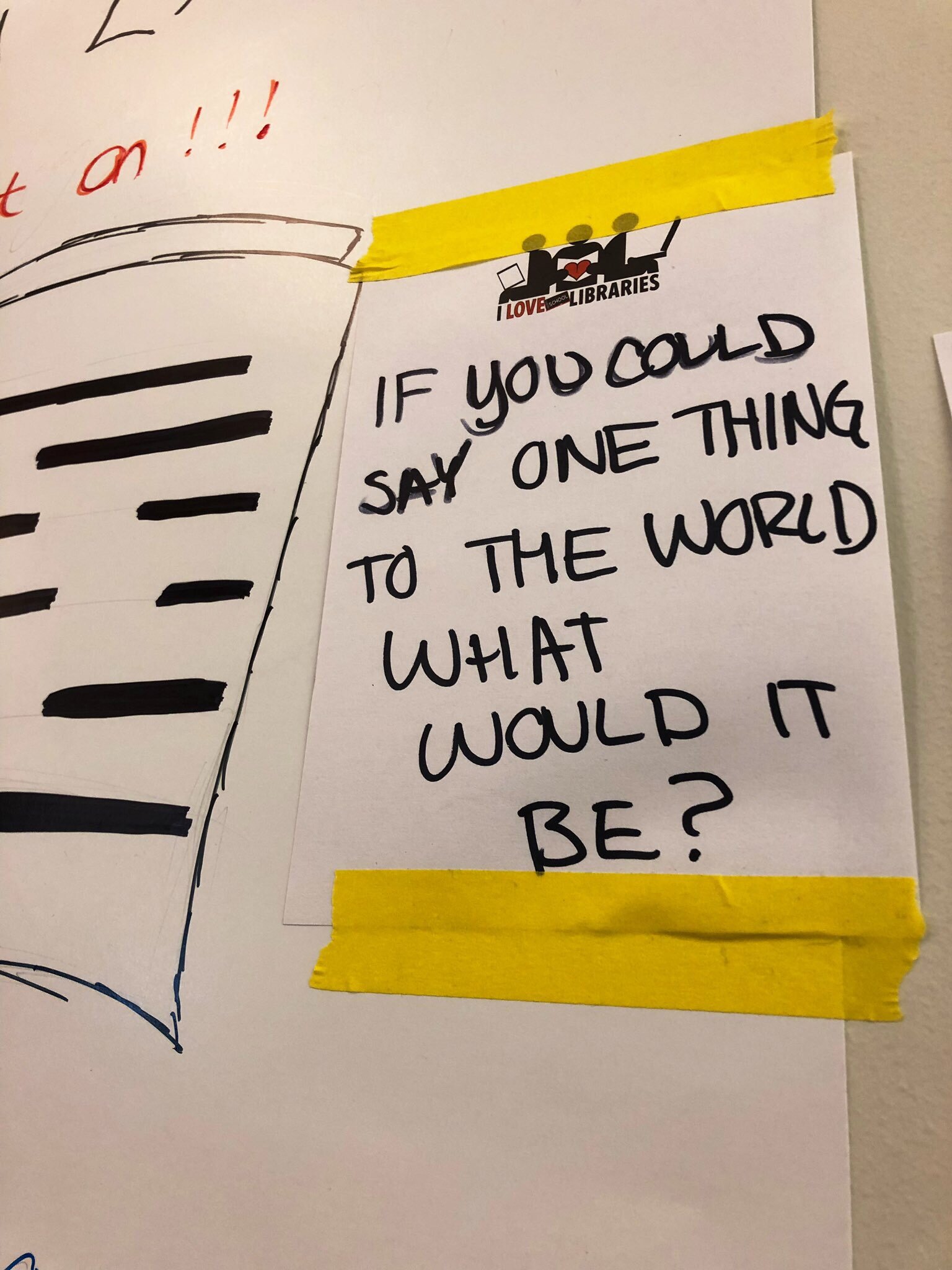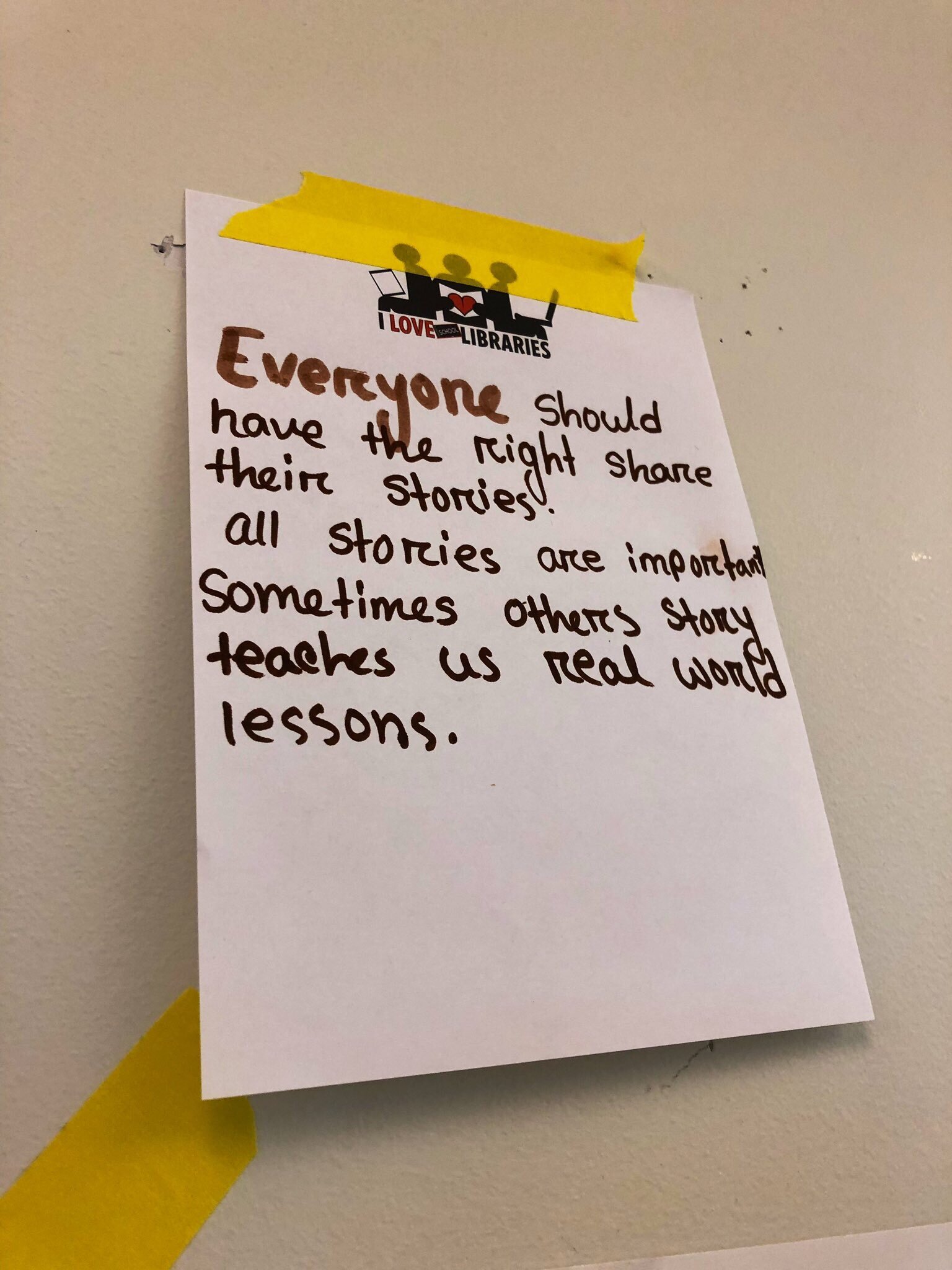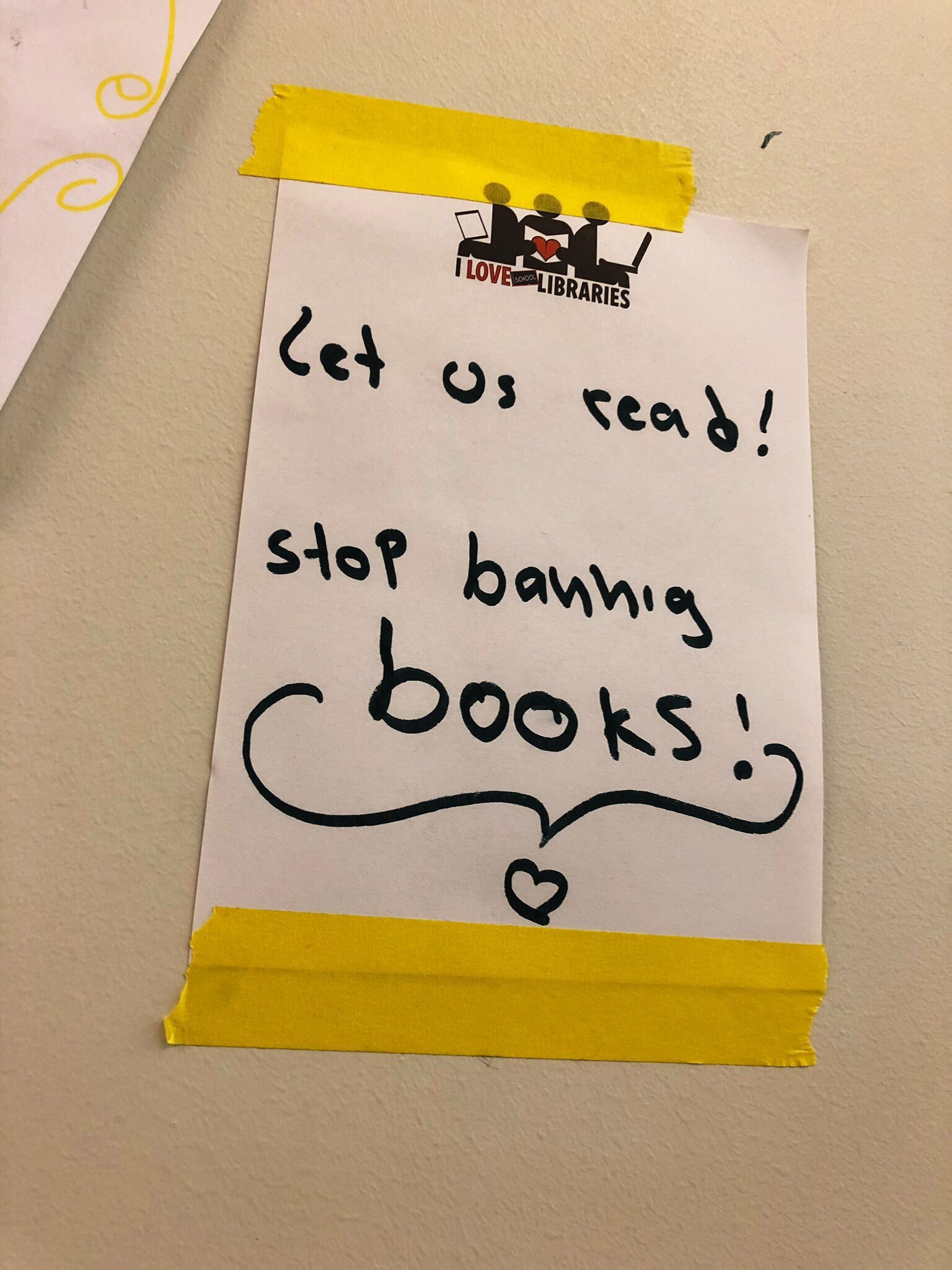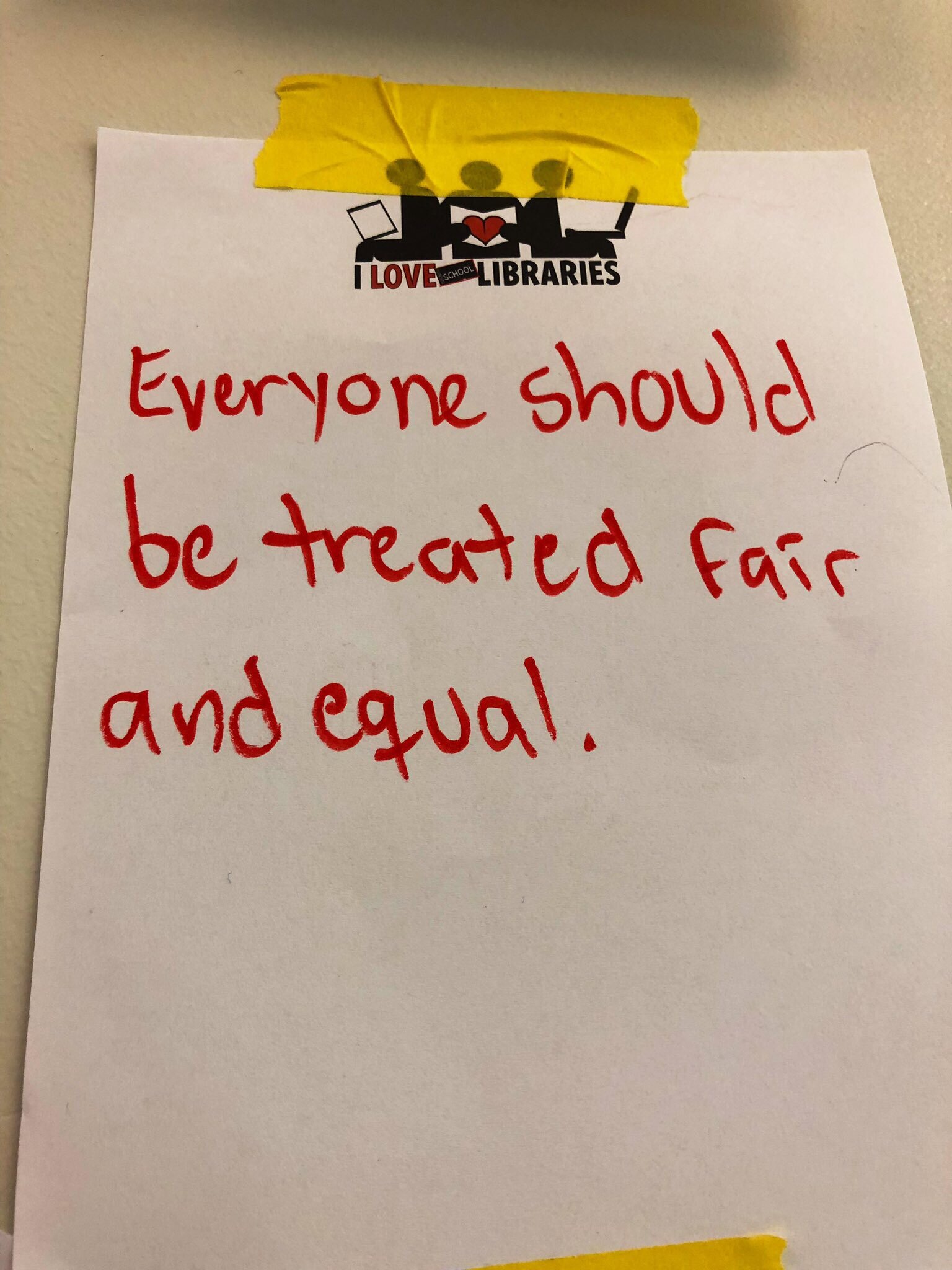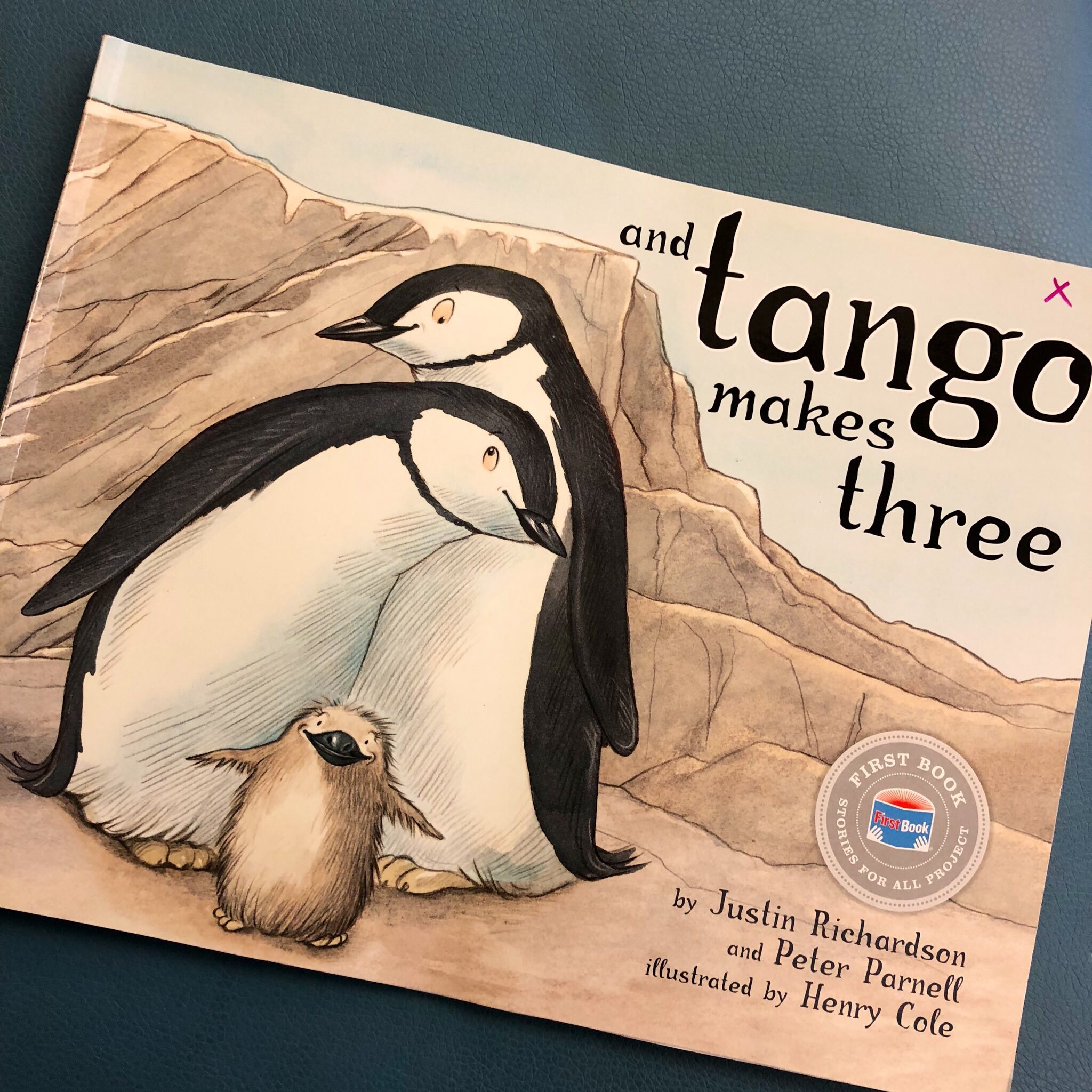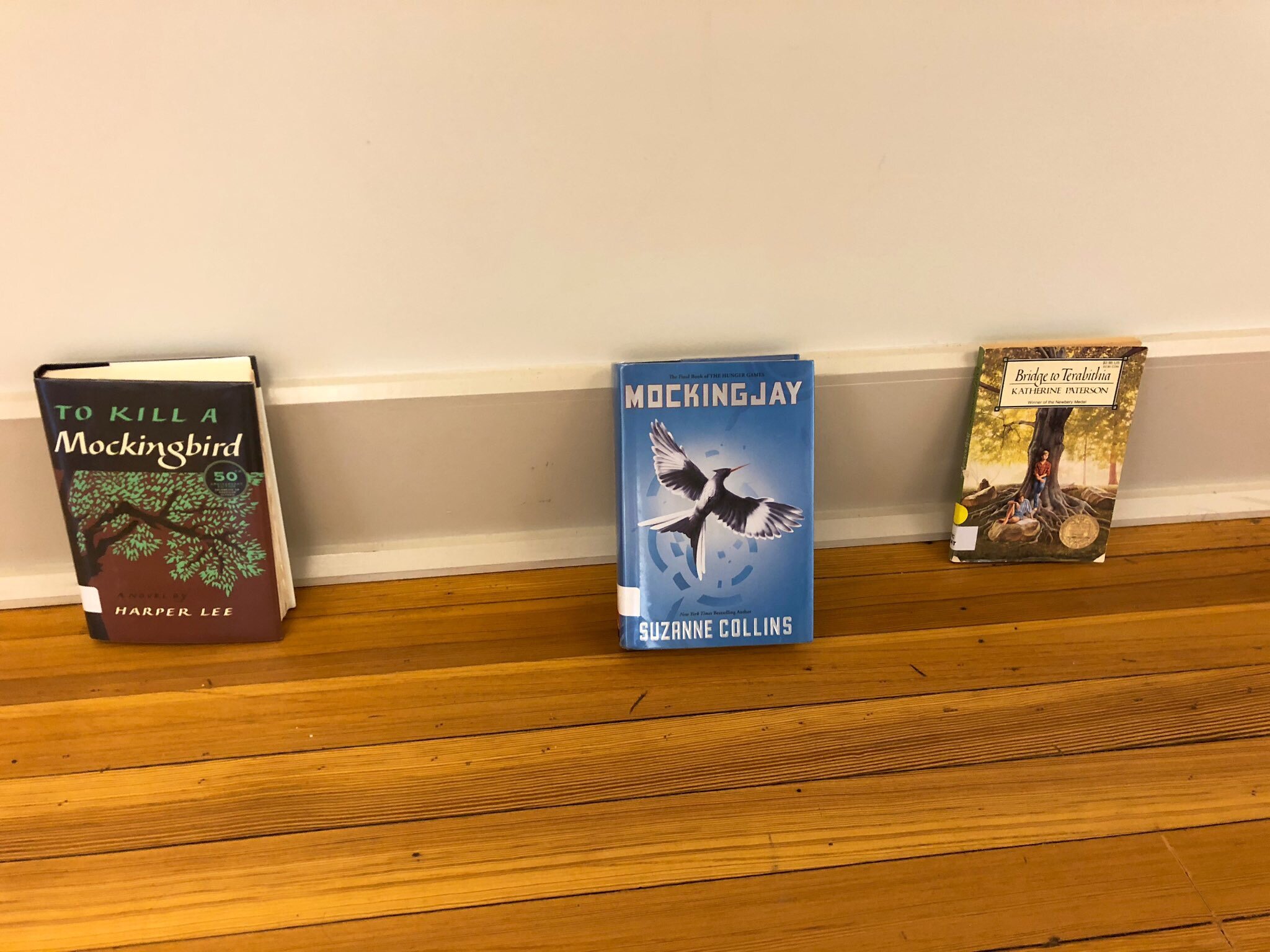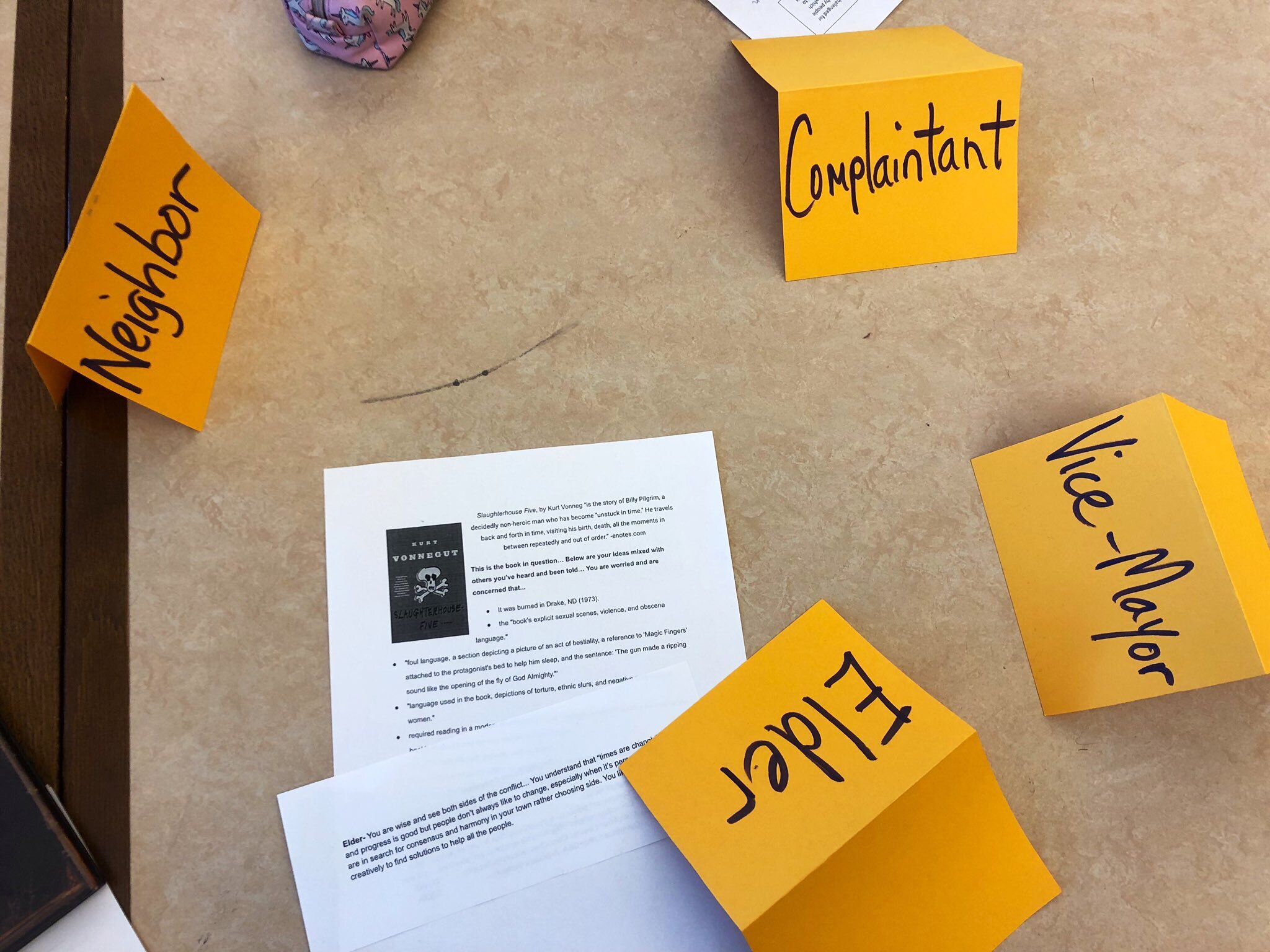Whose Stories are Silenced and Why? Cardozo High School Students Celebrate Banned Books Week
Can you remember your favorite book growing up? Did it introduce you to a new world, either fictional or real? Did it stir you to think about a topic differently? Did you see yourself and your experiences reflected in it?
What if that book was banned?
Cardozo High School (DCPS) students celebrated Banned Books Week from September 22-28, 2019 with daily events aimed at exploring the meaning of freedom of expression from both a national and international context and how certain voices and viewpoints, namely from marginalized communities, are silenced or misrepresented.
Banned Books Week was launched in 1982 in response to the many efforts across the country to remove books from classrooms and libraries that were deemed inappropriate or unsuitable for young people to read and analyze. The week honors the value of free and open access to information and sheds light on what may happen if people are denied the right to information.
Throughout the week, students participated in various activities and delved into deep and critical conversations about whose voices and whose stories are silenced and why. Some of the activities included letter writing, reflections on agree/disagree statements, author role play, library stations, and a field trip to the Newseum. The week was also an opportunity to bring together students from the International Academy at Cardozo and the larger Cardozo community to be in conversation about these topics, as teachers worked together to create innovative opportunities for students to learn together and from one another. Collaborating educators included Beth Barkley (English - International Academy and a “Human Rights and Social Action” course), Monica Gingerich (librarian), and Kevin Fox (social studies, modern U.S. history, AP U.S. history, and street law). Other teachers and their classes joined for stations in the library, including Olivia Dougherty (English), George Telzrow (social studies), and Joanna Davila (Spanish).
Walking down the hallway at Cardozo High School during Banned Book Week, there were numerous books lining the wall with caution tape draped across the glossy covers. I saw many familiar titles including To Kill a Mockingbird, Mockingjay, Bridge to Terabithia, and Harry Potter. If you looked closely, there were warning signs that detailed the books’ offenses, including that the books were obscene and immoral, anti-white, “filthy,” included political theories, and incite violence.
To begin the week, students engaged in a speed dating activity, where they learned each other’s names, dreams, hopes, and interests, as well as shared answers to a powerful prompt,
If you could tell the world one thing and have them listen to you, what would you say?
Along with the "speed dating" activity, they also did an opinion spectrum on issues related to freedom of speech/expression, censorship, and banned books. Students were challenged to stand on one side of the room to indicate whether they agreed or disagreed with the statement. Some of the prompts included,
I believe in total freedom of expression.
I believe in total freedom of expression, even if that expression is not in English.
I believe in total freedom of expression, even if that expression is harmful to someone else.
Students should have access to and read whatever they want.
Students should have access to and read whatever they want, only if they have permission from an adult.
Students should have access to and read whatever they want, only if the characters are positive role models.
This gave students an opportunity to reflect on their morals, backgrounds, and experiences that shape their values and opinions about freedom of speech. Although sometimes difficult to choose just one side, it helped students to engage in debate about a highly contested topic.
After reading certain books that were banned in class, students also wrote letters to the authors of the banned books and to parents who fought to remove books from the classroom. For example, one student read And Tango Makes Three and penned a thoughtful message to the authors, Peter Parnell and Justin Richardson,
I think you did a good job making this book because it is a good way to show that everyone has rights to be who they are and this book doesn’t have to be banned because I really liked how it showed how real life is and to accept one another.
Students filled in worksheets about the five basic freedoms outlined in the First Amendment: freedom of religion, speech, press, assembly, and to petition. They directly named their freedoms,
I have the right to ask for and deserve information.
I have the right to ask the government at any level. I can ask the government to change a policy or correct a problem.
Another activity students did during the week was to participate in an author role play. The author who "joined" them for the role play was Jay Asher, author of Thirteen Reasons Why. Students committed to their roles as interviewers, interviewees, and as audience members asking questions. They read an article and actual interview first to get into character and to answer how they think he would respond to the given questions they created.
On Wednesday, students gathered in the library for three stations. The first station was a read-aloud of And Tango Makes Three, one of the most frequently banned books in the country. It tells the story of Roy and Silo, two male-identified penguins at the Central Park Zoo, who became inseparable and made a family together. Because the book describes two male penguins, the book was banned for eight years. Students engaged in a thorough analysis of the message embedded in the book. Beth Barkley guided them through a series of thoughtful questions,
Why was it banned? How does banning this book affect our society, our thoughts, feelings, and perspectives? Who are we “banning” from society?
Students processed some of their thoughts about the book and the message behind why the book was banned,
We should be able to read about these things.
This shows representation, that you’re not different.
When kids read about books, it’s usually about white boys, dogs, and white girls. If we only see these as superheroes, or main characters, we might be able to envision ourselves in those positions. When we don’t learn about these characters that have different backgrounds, it becomes uncomfortable. Let’s celebrate and bring people in. Let’s value their voices.
For the second station, students did a role play, where they were in a town hall meeting. One person was the vice-mayor, who called the meeting to order and delivered the final decision, the elder, to provide wisdom and reason to the debate, the complainant, who wanted the book to be banned from their child’s school, and the neighbor, who believed that the book should be allowed at the school. The group explored Kurt Vonegut’s Slaughterhouse Five and Alice Walker’s The Color Purple. The group’s consensus on Slaughterhouse Five was that the book shouldn’t be banned, but rather have age and grade restrictions on it, so that only older students who can understand the greater meaning of the text would cover the book in class.
In the last station, students were able to post their answers on the wall to the prompt: , If you could say one thing to the world, what would it be? Students shared strong and moving thoughts,
Everyone should have the right to share their stories.
Stop banning books.
Our voices have power. Raise your voice. Be different. Everyone needs respect.
We have to treat people as we would want them to treat us.
On Friday, students visited the Newseum, a Washington, D.C.-based museum, which introduces visitors to the history of news making and producing, how the free press has played a significant role in different parts of history, and about how the basic freedoms of the First Amendment have been challenged historically. One of the highlights of the trip was an interactive press freedom map, where students honed in on some of their home countries, such as El Salvador. El Salvador was given 41 points out of 100, in which the higher the score, the more restrictive the government is of the country’s news media. Even though the country’s constitution has protections for the press, the government has been hostile towards critical reviews.
After talking to students about how the week shaped their thoughts and opinions about freedom of expression and speech, they emphasized the cathartic power of storytelling and how books have positively influenced them,
We have whole communities of young people and we should respect people’s decisions about how to present themselves to the world. Books have related a lot to me. Poet X really impacted me and I can really relate to the character. I believe that books open a door to your life and it shows you things that you wouldn’t think exist and and you learn a lot from them. —Britany, 11th grade
People can be ignorant and not open. People are focused on one group of people when they should be more accepting and should come together and meet on equal terms instead of banning the books entirely — books that can change the world and impact so many lives. —Steven, 12th grade
Cierra Kaler-Jones is the Education Anew Fellow with Communities for Just Schools Fund and Teaching for Change. She is also a Ph.D. candidate at University of Maryland, College Park studying minority and urban education.




